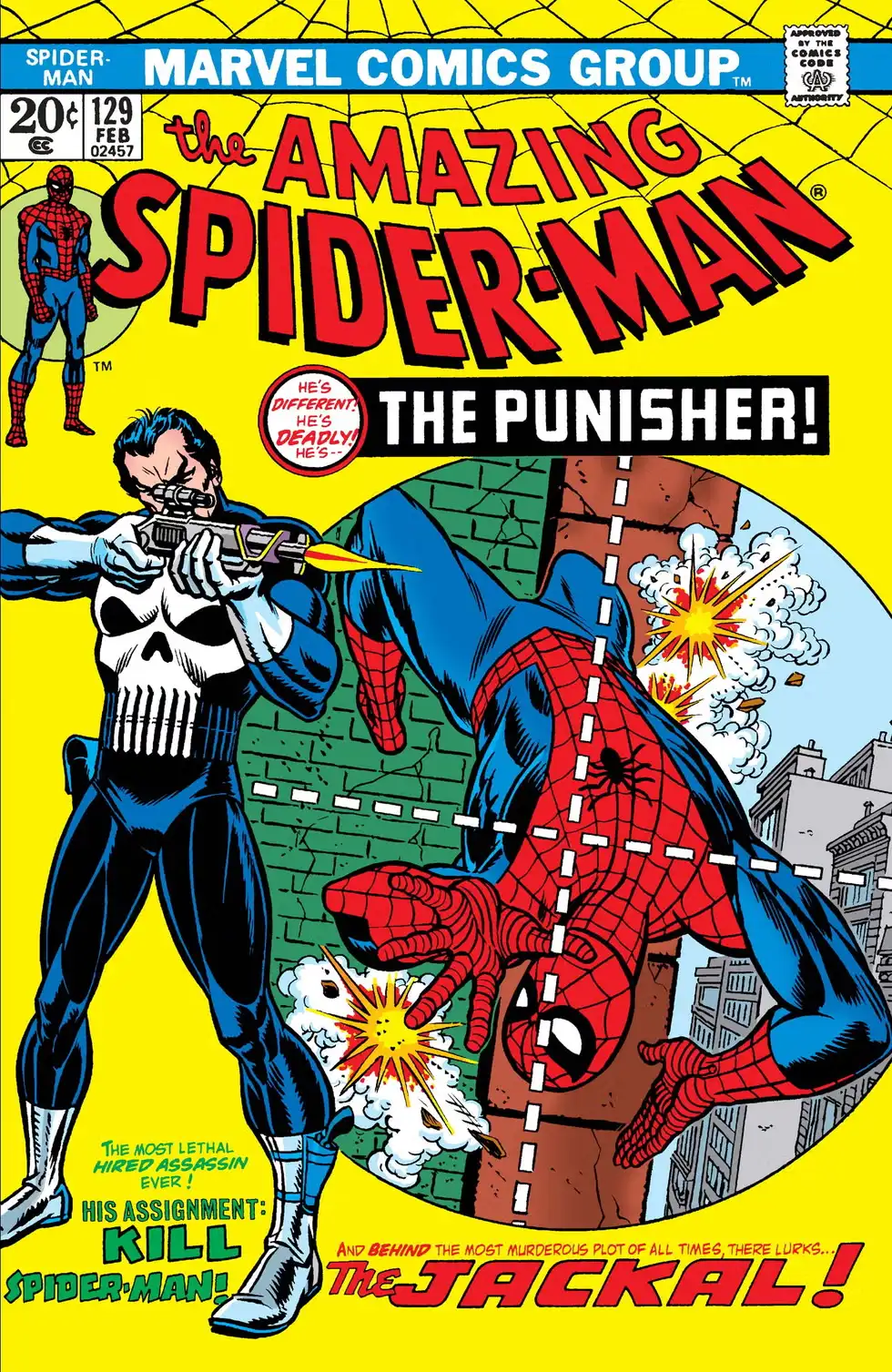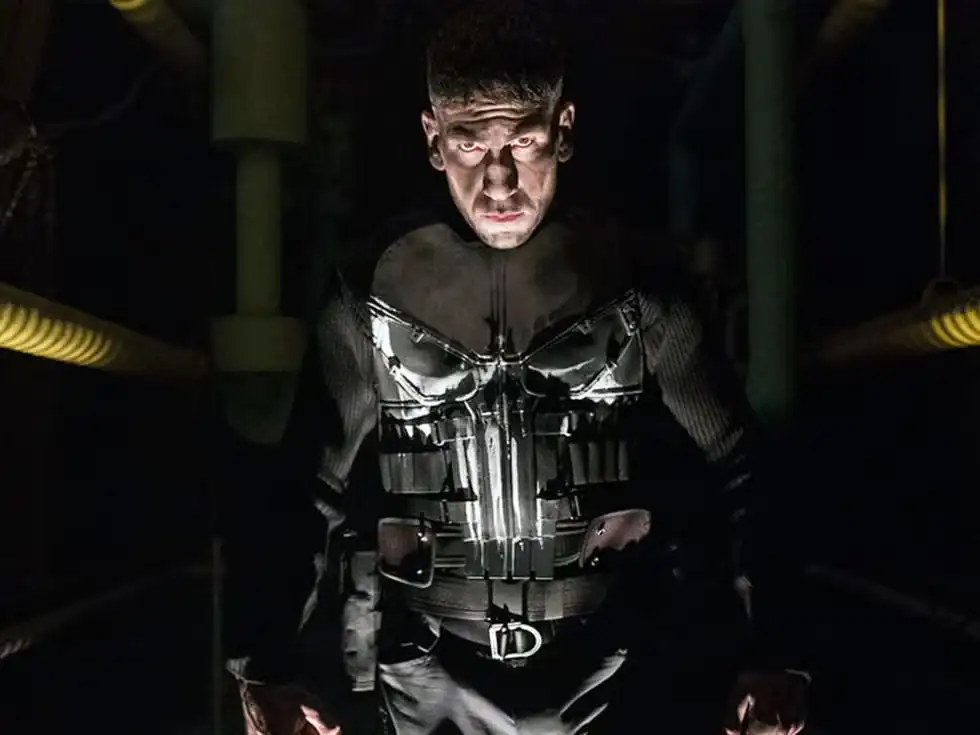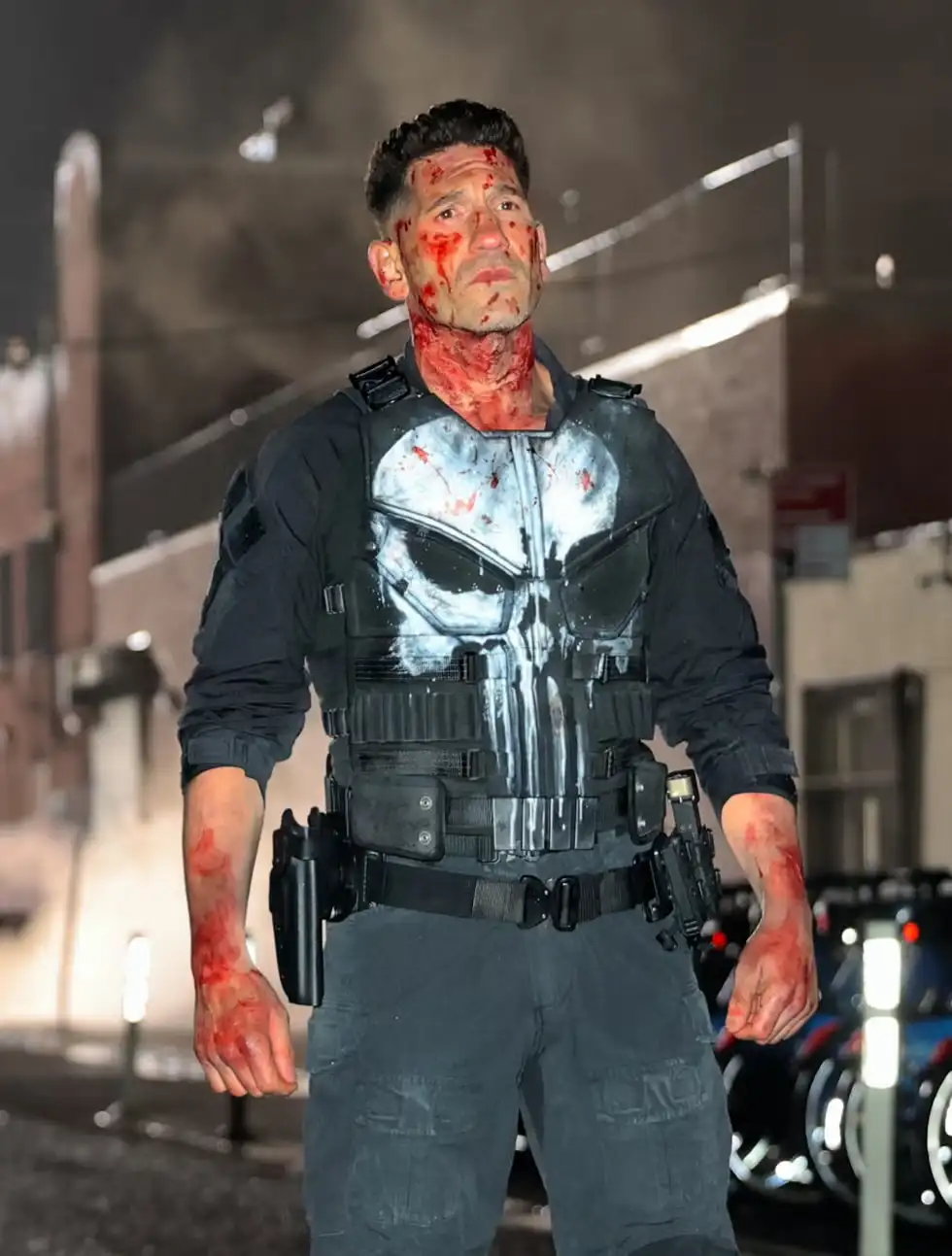In the Marvel universe, few characters carry the same emotional weight and controversial symbolism as Frank Castle — and few actors have embodied that complexity as completely as Jon Bernthal. Now, with the revival of Daredevil in Born Again, Bernthal returns to the role that many fans — and even The Punisher’s creator — consider his best work.
The Gritty Roots of the Netflix Era
When Bernthal first appeared as Frank Castle in Season 2 of Netflix’s Daredevil in 2016, it marked a tonal shift — not only in the show, but in Marvel’s small-screen ambitions. Set against a grimy, post-9/11 Hell’s Kitchen, the show was steeped in street-level grime and urban disillusionment. The bleak opening sequence — filled with city noise, chaos, and violence — introduced Castle not as a superhero, but as a myth forged in gunfire and loss.

A Character Born from American Angst
Created in 1974 by Gerry Conway, Frank Castle made his debut in The Amazing Spider-Man #129. He was part Dirty Harry, part pulp anti-hero, reflecting the Nixon-era obsession with crime and vengeance. Unlike Marvel’s morally upright figures, Castle was a Marine-turned-vigilante with no superpowers — just a mountain of trauma and an unshakable sense of retribution.
- He wasn’t born to save the world — just to clean it up by force.
- His symbol — the iconic skull — has since been co-opted by military and law enforcement factions, to Conway’s dismay.
Yet in this moral gray zone, Bernthal found his perfect character match.
Bernthal’s Punisher: Rage, Grief, and Humanity
By the time he stepped into Castle’s combat boots, Bernthal had already earned a reputation as an actor who could play hard men with soft hearts. From crooked cops to short-fused ex-cons, his roles consistently peeled back layers of vulnerability beneath the violence.
Not Just an Action Hero
Bernthal’s Punisher doesn’t just growl threats and pull triggers — he grieves. In Daredevil, his early scenes are quiet, building tension through silence and physical presence. When he finally speaks — a single word, “Bang” — it lands with more impact than most soliloquies.
His emotional apex comes not in a battle, but in a tearful monologue about his murdered daughter — a moment that turns a comic-book character into a tragic, fully human figure. That fusion of grief and fury would become the hallmark of Bernthal’s Punisher solo series — a show that explored PTSD, survivor’s guilt, and broken systems with more care than most dramas, let alone superhero fare.

The Legacy of Netflix’s Marvel Universe
It’s easy to forget now, but the Netflix-Marvel shows — Daredevil, The Punisher, Jessica Jones, Luke Cage, and even Iron Fist — were a bold departure from the glossy spectacle of the MCU. Filmed on location in New York, with brutal hand-to-hand combat and smaller-scale stories, they gave Marvel fans a grounded, often noir-like take on the superhero genre.
Lower Stakes, Higher Impact
Instead of fighting aliens or multiverse gods, these heroes took on gangs, corruption, and addiction — the kinds of threats that felt personal and urgent. Bernthal’s Punisher was the bruised, bleeding heart of that approach. His first season was a tight, emotional arc — more about healing than heroism — inspired in part by American Sniper and focused on a support group for veterans struggling to adjust to civilian life.
In that context, Castle wasn’t a caricature of vengeance — he was a symbol of what happens when society turns its back on those who fight its wars.
More Than a Role — A Mission
Off-screen, Bernthal has continued to blur the lines between actor and advocate. His podcast Real Ones brings together former inmates, military veterans, and law enforcement officers in raw, often emotional conversations. It’s not performative — it’s Bernthal doing what he’s always done best: listening, reflecting, and trying to understand.
- He interviews Navy SEALs and UFC fighters with the same sincerity he shows to ex-cons and trauma survivors.
- He avoids culture war cynicism in favor of nuanced, humanizing dialogue.
This sense of empathy is why his Punisher feels more grounded than any other iteration — and why, even years after his last appearance, fans demanded his return.

Daredevil: Born Again — A New Chapter, Same Pain
Bernthal’s return in Daredevil: Born Again isn’t just a cameo. It’s a continuation of a character who has come to mean something real — to fans, to veterans, and to the actor himself. The show reportedly explores the misuse of the Punisher symbol, addressing directly the way it’s been co-opted by extremist elements — a theme Bernthal has spoken about publicly with visible discomfort.
Back With a Purpose
This isn’t nostalgia. It’s personal. By co-writing a new Punisher standalone project and reprising the role in Born Again, Bernthal is reclaiming the character and steering him toward more thoughtful territory. For Bernthal, Castle isn’t just a trigger-happy antihero — he’s a man scarred by war, loss, and pain, still trying to find peace.
Still the Perfect Punisher
There have been other Punishers. But none have felt as lived-in, as real, or as necessary as Bernthal’s. His return isn’t just a smart casting decision — it’s an affirmation of everything that made the Netflix era of Marvel compelling, and a hopeful sign that superhero stories can still have something to say.
Jon Bernthal hasn’t just played Frank Castle — he’s understood him. And with Daredevil: Born Again, he gets to finish what he started — not with fan service, but with purpose.



